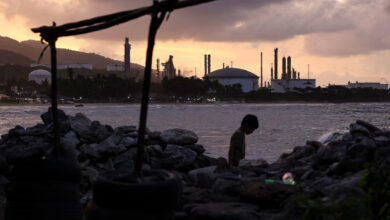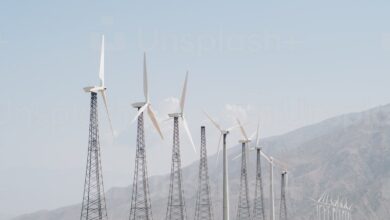Every environmental challenge is a development opportunity in the highest sense. To simplify, the theory of sustainable development implies giving equal attention to the 3 Ps: People, Planet and Profit. In this sense the planet’s environmental dimension is considered as important as the profit and people involved in business activities.
Water, a magic molecule, is not a challenge only for Egypt but the entire world, given the limited amount of fresh water available globally. When we consider how much water we consume in Egypt, it is difficult to envision the country reaching the comfort hydration zone any time soon.
In Egypt today, development plans carried out in Upper Egypt are decreasing the quantity of water available. Although the country needs to develop, the environmental impact of such projects – rarely taken into account – tend to have devastating long-term effects.
Building a dam causes major disruption by altering water flow rate and temperature.
Moreover, blocking a river and creating a reservoir has the major disadvantage of altering the evaporation rate at the location due to temperature changes and physical blockages that eventually affects how water feeds into the river. This, in turn, has a negative impact on the Nile's water cycle. In this case, both Egypt and Ethiopia are losers for allowing the gradual destruction of the Nile’s biodiversity.
How to solve Egypt’s water challenges?
First of all, the fact that the UN has recognized water as a human right should prevent any country from controlling the volume and quantity of water shared with another. The Management of Ecosystem services (formalized by the UN 2004 Millennium Ecosystem Assessment) calculates the economic value of natural resources granted to us by nature and determines the fair share between various countries according to their actual needs. Based on scientific evidence and according to the calculations, Egypt should be granted a smaller share of water than the one it receives at the moment. Moreover, the idea of development should be increasingly concerned with food safety rather than individualistic needs and demands.
Internally, too little is being done: Egypt has no water footprint service offered and enforced by its government, and the fact that most freshly produced water is dedicated to intensive rice production is discouraging. The treatment of waste water is dismal and leads to low quality tap water which can cause kidney and intestinal disease.
Desalination, which would naturally appear the best option for Egypt, has not been used enough. Coupled with the water reserves in groundwater and systems for rain harvesting in many locations around the country, our share of fresh water is not severely limited. Other countries with larger populations have survived with less water, but it is always mismanagement that has kept Egypt miles away.
We should not ignore the number of jobs that could be created by implementing water technology. Desalination projects would employ many people, foster dialogue on environmental issues and open gates for renewable energy to pump water into hot areas and those close to the sea. A major benefit of desalinated water is that is it also suitable for agriculture.
It is pitiful that we continue to rely on the Nile as our only water source when we have many other sources.
Industries with large water footprints should also be taxed accordingly for water consumption, and the revenue generated by the implementation of this tax could eventually finance water technology.
The coming water challenge could present a true opportunity for Egypt to gear its economic mechanism towards a more sustainable approach.
By engaging the public and promoting their participation, we can do our homework by fostering dialogue on climate change and sustainable industrial and agriculture practices on the local level. If citizens become aware of how pollution impacts their lives, they will automatically adapt their behavior to reduce such impacts, which will create demand for a more sustainable consumption and production.



